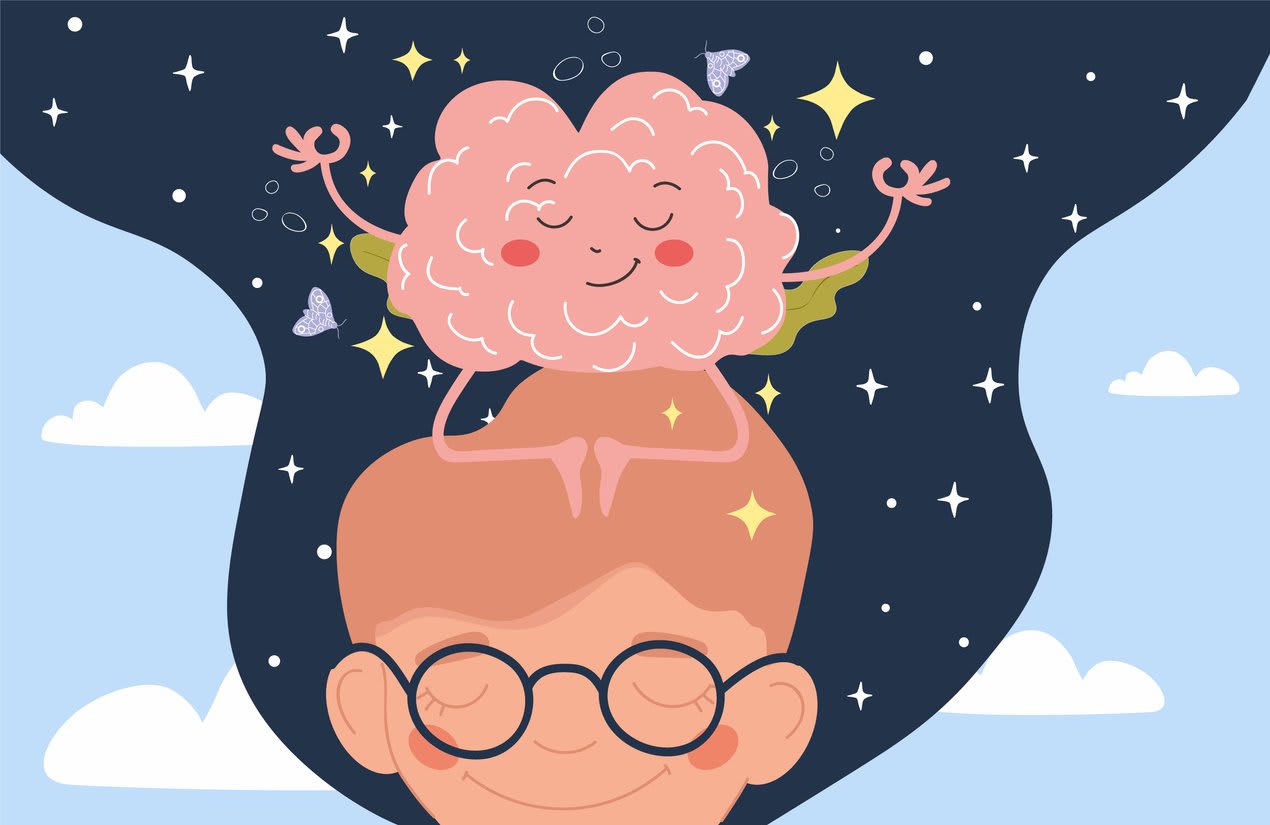In today’s fast-paced world, the ability to maintain focus and concentration can be the key to unlocking success and personal fulfillment. Imagine completing tasks efficiently, reducing stress, and producing high-quality work consistently. This is achievable when we master our focus and concentration. In this blog post, we will explore the concepts of focus and concentration, discuss strategies on how to improve focus, and reveal the benefits of sharpening these skills. Are you ready to unlock your true potential? Let’s dive in!
Key Takeaways
- Improve focus and concentration to increase productivity, reduce stress and enhance work quality.
- Strategies for improvement include creating a distraction-free environment, prioritizing tasks, developing routines & practicing mindfulness/meditation.
- Overcome common obstacles by setting boundaries with technology distractions, combating procrastination & managing mental fatigue through adequate sleep & self care.
Understanding focus and concentration
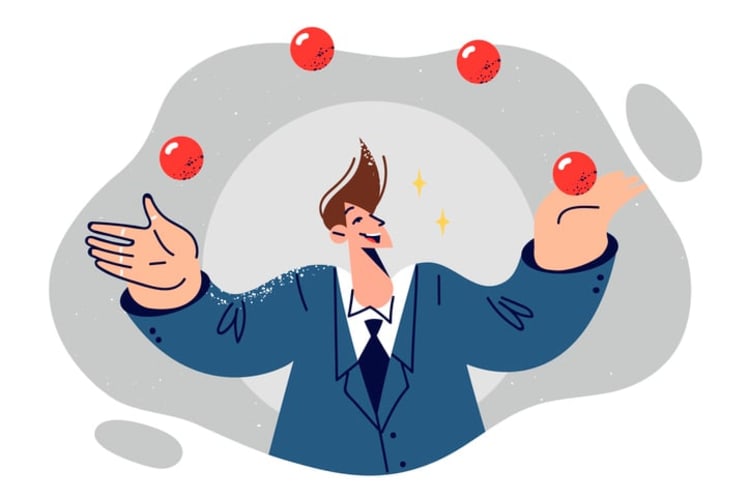
Focus and concentration are two vital skills that can greatly influence our daily lives. Focus refers to our capacity to direct our attention and mental resources towards a particular task or objective, while concentration is the ability to direct our attention in accordance with our will. Improving these skills is of great value, as distractions are constantly competing for our attention.
Refining focus and concentration is vital for achieving excellence, fulfilling obligations, and thriving in our professional and personal lives. It’s important to learn how to ignore distractions and maintain focus on the task at hand. In the subsequent sections, we will delve into diverse strategies to hone these skills and tackle common hurdles.
Mental focus

Mental focus refers to an individual’s primary focus on their ability to zero in on relevant information in their environment, a skill that can be enhanced by mitigating distractions. It is essential for the acquisition of new knowledge, the attainment of objectives, and the successful completion of a broad range of tasks.
The brain needs to differentiate between relevant and irrelevant information in order to focus. Various strategies can be employed to improve mental focus, such as:
- practicing mindfulness and meditation
- engaging in regular exercise
- optimizing sleep habits
- taking scheduled breaks
- focusing on single-tasking as opposed to multitasking
Adopting these strategies can fortify your mental focus and elevate your accomplishments.
Concentration
Concentration, or mental concentration, is the act of maintaining attention on a single subject while excluding unrelated thoughts and distractions. It is crucial to nurture this ability, as it directly impacts our productivity and overall well-being.
Sharpening our concentration skills enables us to manage our mental resources efficiently and maneuver through life’s incessant distractions.
Strategies for enhancing focus
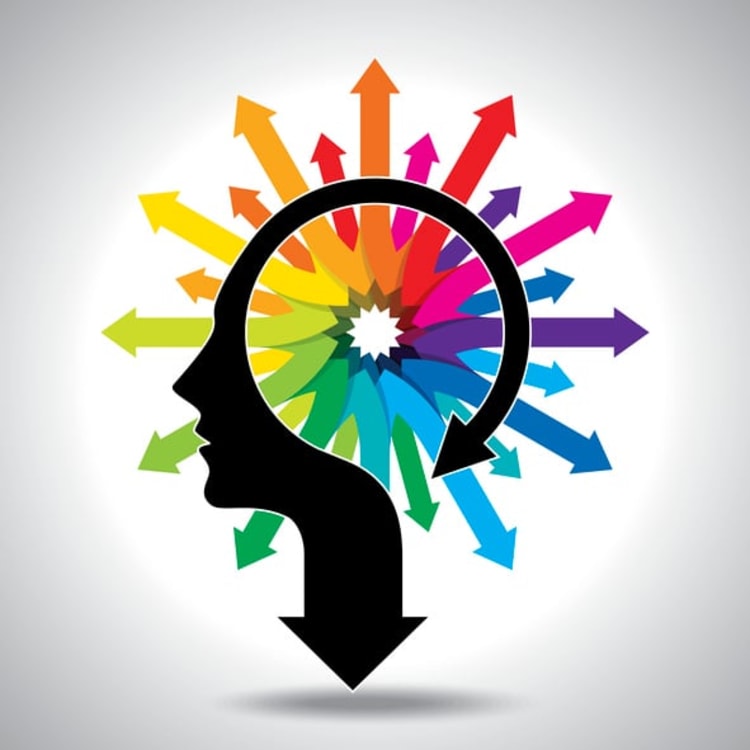
To enhance focus and concentration, it’s important to use a combination of strategies tailored to our unique needs and challenges. The following ten strategies have been proven to enhance focus and concentration, leading to increased productivity, reduced stress, and improved work quality.
Incorporating these strategies into your routine can help you realize your full potential and attain greater success.
Create a distraction-free environment
Establishing a distraction-free environment involves limiting distractions by:
- Eliminating interruptions, noise, and clutter to enhance focus
- Allocating certain periods for particular tasks or activities, including phone calls
- Requesting to be left undisturbed
- Silencing notifications on your devices
Reducing constant distractions enables you to eliminate distractions more effectively, allowing you to focus on the task at hand and thereby boosting your overall productivity.
In addition to physical distractions, it’s essential to manage mental distractions as well.
Practicing mindfulness and meditation can help you stay present in the moment and improve your concentration. Creating a distraction-free environment, both physically and mentally, aids in maximizing focus and achieving your goals with greater efficiency.
Prioritize and organize tasks
Prioritizing and organizing tasks is crucial for maintaining focus and preventing feelings of being overwhelmed. Identifying and scheduling time for the most critical tasks helps maintain focus on what truly matters. Setting an anchor task, or a priority task that is non-negotiable, can help guide your actions and keep you on track.
To further enhance your focus, consider scheduling tasks based on your energy levels throughout the day. For instance, creative tasks can be scheduled for the morning when your creative energy is at its peak, while tasks requiring less focus can be scheduled for the afternoon. Effectively prioritizing and organizing tasks can help in reducing distractions and maintaining momentum throughout the workday.
Develop a routine
Developing a routine can provide consistency and structure, which can help improve focus. Creating a daily or weekly plan that optimizes focus can be achieved by setting clear goals, breaking tasks into smaller components, and allocating specific times for each task. Maintaining a consistent routine allows you to establish a rhythm and build momentum, ultimately leading to enhanced focus and concentration.
In addition to creating a routine, it’s important to ensure there is some flexibility built into your schedule to accommodate unforeseen circumstances or changes. Incorporating short breaks into your routine can also facilitate rest and recharging, allowing you to maintain focus throughout the day.
Developing a routine tailored to your specific needs and goals effectively enhances focus and productivity.
Practice mindfulness and meditation
Practicing mindfulness and meditation can play a significant role in enhancing cognitive abilities, mental focus, and concentration. Focusing on the present moment and maintaining awareness of thoughts, emotions, and perceptions cultivates a greater sense of mental clarity and control.
Integrating mindfulness and meditation into your routine aids in managing distractions, improving the attention span, and boosting overall focus and concentration.
Incorporate regular exercise
Engaging in regular physical activity has been shown to stimulate the brain, improve memory capacity, and increase overall concentration. Exercise not only refreshes the brain, but also boosts energy levels, providing additional motivation to remain focused and productive at work.
Integrating regular exercise into your routine profoundly impacts mental focus and overall well-being.
Optimize sleep habits
Ensuring adequate rest and recovery is crucial for maintaining focus and concentration. Obtaining an adequate amount of sleep can help maintain alertness and wakefulness, particularly during the morning hours, which can enhance mental acuity. In fact, just a few hours of quality sleep can make a significant difference in your cognitive performance.
If you continue to struggle with obtaining sufficient sleep, consider seeking advice from a healthcare professional for further guidance. Optimizing sleep habits significantly improves focus and overall cognitive function.
Take scheduled breaks
Taking scheduled breaks is essential for preventing mental fatigue and maintaining momentum and focus on tasks. Setting a timer and planning breaks in advance ensures regular pauses for recharging and refocusing.
Incorporating breaks into your routine not only helps maintain concentration, but also supports overall mental well-being.
Single-tasking over multitasking
Emphasizing single-tasking over multitasking can help minimize distractions and improve work quality and attention span. Concentrating on one task at a time allows for systematic work progress, preventing feelings of being overwhelmed and potential ineffectiveness.
Focusing on single-tasking allows you to remain fully engaged in the task at hand, leading to increased focus and higher-quality outcomes.
Utilize brain training activities
Brain training activities, such as puzzles, memory games, and problem-solving tasks, can help strengthen cognitive abilities and improve concentration. Incorporating these activities into your routine can enhance focus and sharpen mental skills.
Utilizing brain training activities can provide an enjoyable and engaging way to improve your focus and overall cognitive function.
The benefits of improved focus and concentration
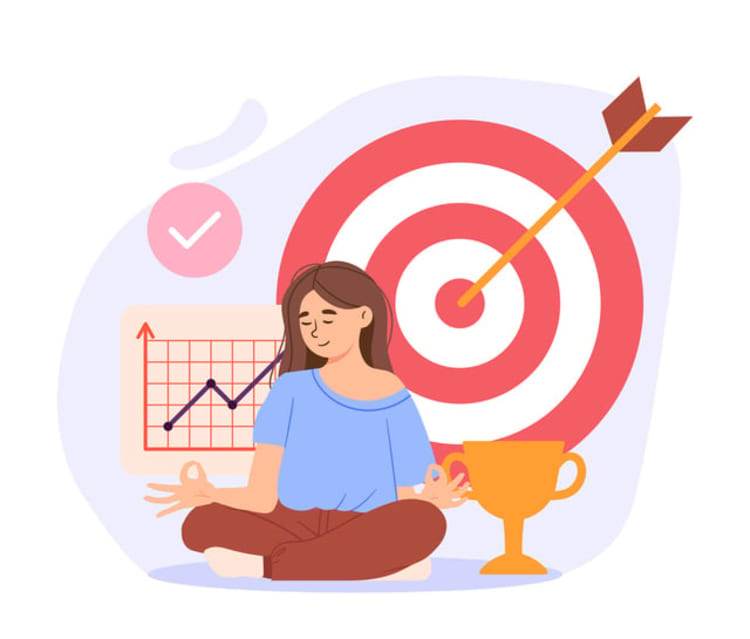
The benefits of improved focus and concentration are many, including increased productivity, reduced stress, and enhanced work quality. Concentrating energy on a single task allows you to tick off more items from your to-do list, freeing up space in your work schedule. Additionally, remaining on task and increasing productivity can help ensure that you do not fall behind on work and that you are not forced to meet deadlines at the last minute.
Improved focus and concentration can have several benefits, including:
- Higher work quality, as you can dedicate your full attention to the task at hand and produce fewer errors
- Greater success in both personal and professional life
- A more fulfilling and balanced existence
Honing focus and concentration skills is a valuable investment in yourself.
Increased productivity
Better focus and concentration directly contribute to increased productivity, as you can complete tasks more efficiently and effectively. Dedicating full attention to the task at hand minimizes distractions and maintains momentum throughout the workday.
Enhanced productivity not only leads to a sense of accomplishment, but also provides more time to attend to other tasks and enjoy a well-balanced life.
Reduced stress
Improved focus and concentration can result in reduced stress levels, as you can manage your time more effectively and prevent feelings of being overwhelmed. Staying on task and increasing productivity prevents falling behind on work and avoids the stress of last-minute deadlines.
Ultimately, reducing stress can lead to better overall well-being and a more balanced life.
Enhanced work quality
Dedicating your full attention to tasks results in higher work quality, as you can minimize errors and produce more accurate and reliable outcomes. Enhanced work quality not only contributes to your professional success, but also fosters a sense of pride and accomplishment in your efforts.
Improving focus and concentration enables consistent production of high-quality work and excellence in chosen endeavors.
Overcoming common focus obstacles
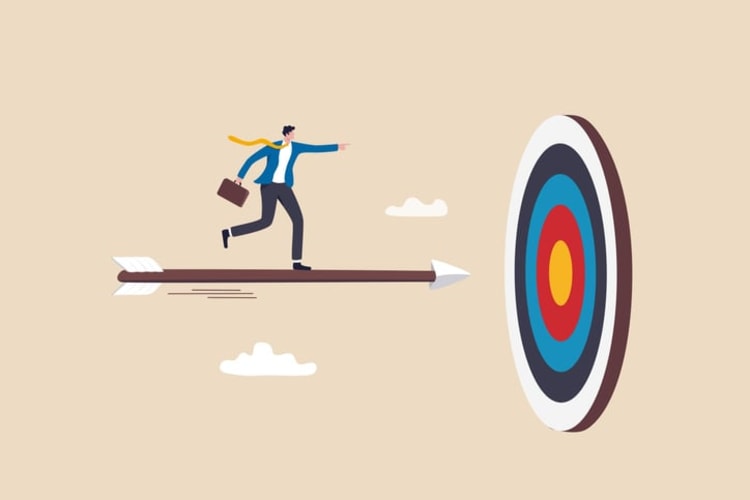
While the journey to improved focus and concentration can be challenging, it is essential to recognize and address common focus obstacles that may impede your progress in order to stay focused.
In this section, we will discuss technology distractions, procrastination, and mental fatigue, along with strategies to overcome these obstacles and maintain your focus.
Technology distractions
Managing technology distractions is crucial for maintaining focus and concentration in today’s digital age. Reducing distractions and improving focus can be achieved by setting boundaries with technology use, such as limiting the duration of device usage per day and designating certain periods as “device-free” zones. Additionally, productivity tools can be utilized to block specific websites or apps, restrict the duration spent on devices, and customize notifications to minimize distractions.
Establishing boundaries and utilizing productivity tools effectively manages technology distractions, ultimately leading to improved focus and concentration. Remember that technology should be a tool to aid your productivity, not a hindrance to your progress.
Procrastination
Overcoming procrastination is essential for maintaining focus and productivity. Procrastination can be the result of a lack of motivation, fear of failure, or lack of interest in the task at hand. To counteract procrastination, consider breaking tasks into smaller steps, setting deadlines, and using rewards to motivate progress.
Segmenting tasks and creating a structured plan makes tasks more manageable and enjoyable, leading to improved focus and concentration. Remember that the key to overcoming procrastination is taking action, even if it’s just a small step in the right direction.
Mental fatigue with Kumospace
Combating mental fatigue is crucial for maintaining focus and concentration. Mental fatigue can manifest as difficulty concentrating, decreased productivity, and a lack of motivation. To combat mental fatigue, ensure adequate sleep, take breaks, and practice self-care. In the evolving landscape of remote and hybrid work, addressing mental fatigue goes beyond traditional methods.
Integrating innovative solutions like Kumospace, a virtual office platform, can provide a unique approach to fostering a healthier work environment. Kumospace offers virtual spaces that recreate the spontaneity of physical office interactions, facilitating social connections and collaborative environments. Scheduled breaks and events within Kumospace further contribute to combating mental fatigue by providing designated times for relaxation and team bonding.
This integration of traditional self-care practices with modern virtual solutions contributes to overcoming the common obstacle of mental fatigue, paving a path to improved focus and concentration. Remember that self-care and rest, combined with these innovative approaches, are essential components of a well-balanced life, playing a critical role in maintaining focus and productivity in the dynamic landscape of remote work.
FAQs
In this section, we explore frequently asked questions about focus and concentration, offering further insights and tips for improvement.
These questions cover various aspects of focus and concentration, from understanding their definitions to exploring strategies for enhancing these important skills.
Summary
In conclusion, focus and concentration are essential skills for success and personal fulfillment. By understanding these concepts and implementing the strategies discussed in this blog post, you can unlock your true potential and achieve a more balanced and productive life. Remember that the journey to improved focus and concentration is a continuous process, and with dedication and persistence, you can overcome obstacles and consistently excel in your endeavors. So why wait? Start empowering your focus and concentration today, and watch as your world transforms for the better.
Frequently Asked Questions
Poor focus can be the result of various factors, such as overworking, lack of sleep, stress, spending too much time on the computer, chronic stress, anxiety, physical issues, mild cognitive impairment, mood disorders, fatigue, poor sleep, dehydration, an unhealthy diet, and sedentary behavior.
It is important to identify the underlying cause in order to address it appropriately.
Difficulty concentrating and lack of focus can be caused by a variety of factors, including stress, lack of sleep, an underlying medical condition, mood disorders, lifestyle issues such as fatigue or stress, and other environmental factors.
It is important to identify the underlying cause in order to develop strategies for improving concentration.
You can improve focus with a combination of brain training, regular exercise, spending time in nature, meditation, and short-term challenges.
Research suggests that small investments of time into these activities can result in improved executive attention and enhanced working and short-term memory.
To improve focus and concentration at work, identify the current state of your focus, limit or remove distractions, prioritize tasks, set aside time to focus, create a routine, minimize online distractions, indulge in small rewards, and communicate your work policies.
Identify the current state of your focus by assessing how much time you spend on tasks and how productive you are. Limit or remove distractions by turning off notifications, setting boundaries with colleagues, and avoiding multitasking. Prioritize tasks by creating a to-do list and focusing on the most important tasks first. Set aside time to focus.
Improved focus and concentration can help us be more productive, reduce stress, and deliver better work quality.
